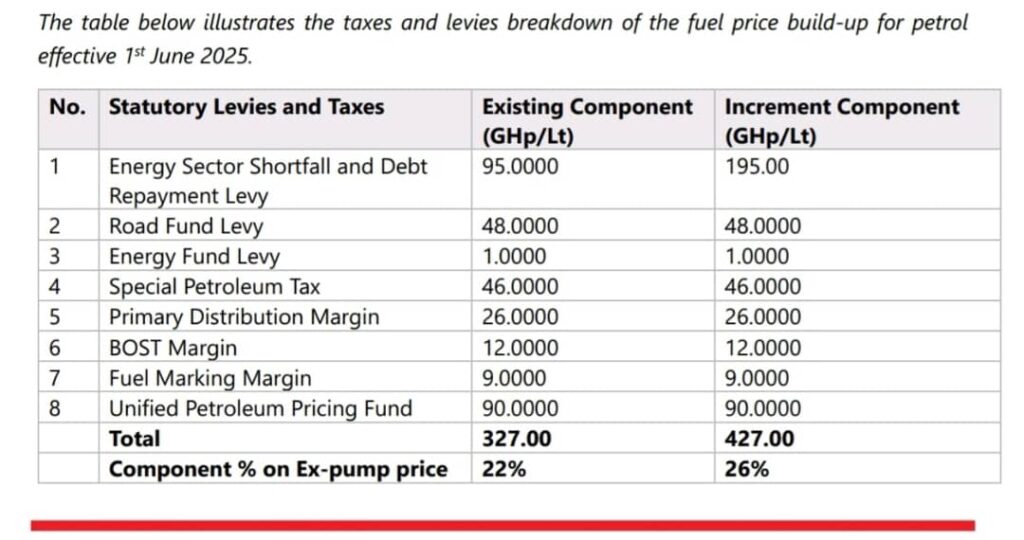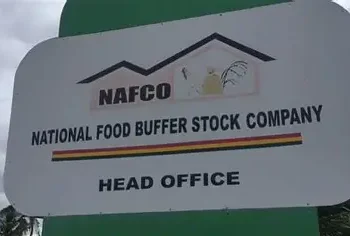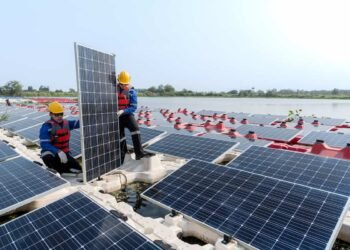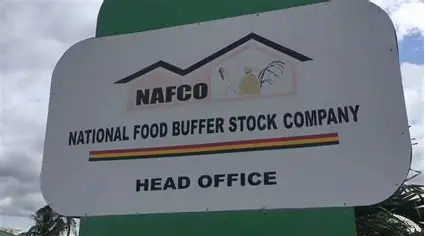The Chamber of Oil Marketing Companies (COMAC) has voiced strong opposition to the government’s recent amendment of the Energy Sector Levies Act, introducing a GH¢1 increment under the Energy Sector Shortfall and Debt Repayment Levy (ESSDRL).
The chamber warned that the decision, though aimed at alleviating Ghana’s US$3.1 billion energy sector debt, could have devastating consequences on the downstream petroleum industry and consumer livelihoods.
In a detailed press release issued by Dr. Riverson Oppong, CEO and Industry Coordinator of COMAC, the group described the levy hike as a “significant risk” to businesses operating within the oil marketing ecosystem, citing a record tax burden of 26% on ex-pump fuel prices.
“While we recognize the government’s need to address mounting sector debts, the sharp increase in ESSDRL places unsustainable pressure on OMCs, LPG marketers, and consumers.”
Dr. Riverson Oppong, CEO and Industry Coordinator of COMAC

COMAC provided a breakdown of fuel taxes effective June 1, 2025, revealing that eight statutory levies—including the Road Fund Levy, Special Petroleum Tax, and Unified Petroleum Pricing Fund—collectively form 22% of the fuel price.
With the new increment, this will rise to 26%, making it one of the highest tax components in Ghana’s recent fuel pricing history.
“Petroleum products already bear a heavy tax load.
“Further increases only widen the gap between cost and affordability, with operational repercussions for oil marketers and economic hardship for consumers.”
Dr. Riverson Oppong, CEO and Industry Coordinator of COMAC
Industry Margins Under Pressure

COMAC painted a stark picture of the industry’s fragility under current conditions. Many retail outlets reportedly operate on narrow, diminishing profit margins, with inventory turnover periods exceeding 30 days.
This delay in recouping costs, COMAC explained, limits the ability of OMCs and LPGMCs to meet regulatory obligations, invest in infrastructure, and fulfil tax remittance timelines.
“Retailers face statutory obligations from multiple institutions, including the National Petroleum Authority (NPA), Environmental Protection Agency (EPA), and Ghana Standards Authority (GSA).
“When combined with rising operational costs and weak margins, the cumulative impact threatens industry sustainability.”
Dr. Riverson Oppong, CEO and Industry Coordinator of COMAC
Dr. Oppong warned that if international crude prices rise again, the ability of marketers to absorb added costs will evaporate.

“The only recourse would be passing costs to consumers, likely resulting in up to 5% declines in sales volume and disproportionately affecting smaller retailers.”
Dr. Riverson Oppong, CEO and Industry Coordinator of COMAC
One of the most contentious aspects of the levy increment is the inclusion of Liquefied Petroleum Gas (LPG), a move COMAC believes directly contradicts the government’s own 2030 goal of achieving 50% nationwide LPG penetration.
The chamber noted that affordability remains a primary driver of LPG adoption among low-income households.
“Price hikes in LPG will push vulnerable populations back to traditional biomass fuels like firewood and charcoal, undermining environmental sustainability, health, and the success of the Cylinder Recirculation Model introduced in 2017.”
Dr. Riverson Oppong, CEO and Industry Coordinator of COMAC
Structural Reform, Not New Levies

While reiterating its commitment to national energy recovery, COMAC firmly argued that industry survival should not be sacrificed to cover the inefficiencies and mismanagement within the energy value chain.
“We continue to support energy sector recovery through consistent remittances under the current levy framework.
“However, placing additional financial strain on the industry and consumers, without addressing underlying structural failures in power and electricity management, is not sustainable.”
Dr. Riverson Oppong, CEO and Industry Coordinator of COMAC
COMAC called for immediate collaboration with the Ministry of Energy and Green Transition to develop evidence-based, inclusive policies that recognize the complexities of the downstream petroleum industry.
“The absence of stakeholder engagement prior to this amendment is deeply troubling.
“We urge government to consult industry players to ensure that fiscal policies are aligned with practical realities, economic competitiveness, and consumer protection.”
Dr. Riverson Oppong, CEO and Industry Coordinator of COMAC
The chamber reiterated its readiness to contribute to a robust, sustainable energy sector, but cautioned that reform must begin with transparency and efficiency—not tax hikes.
READ ALSO: Mahama Fuel Levy, A Betrayal- Ahiagbah



















